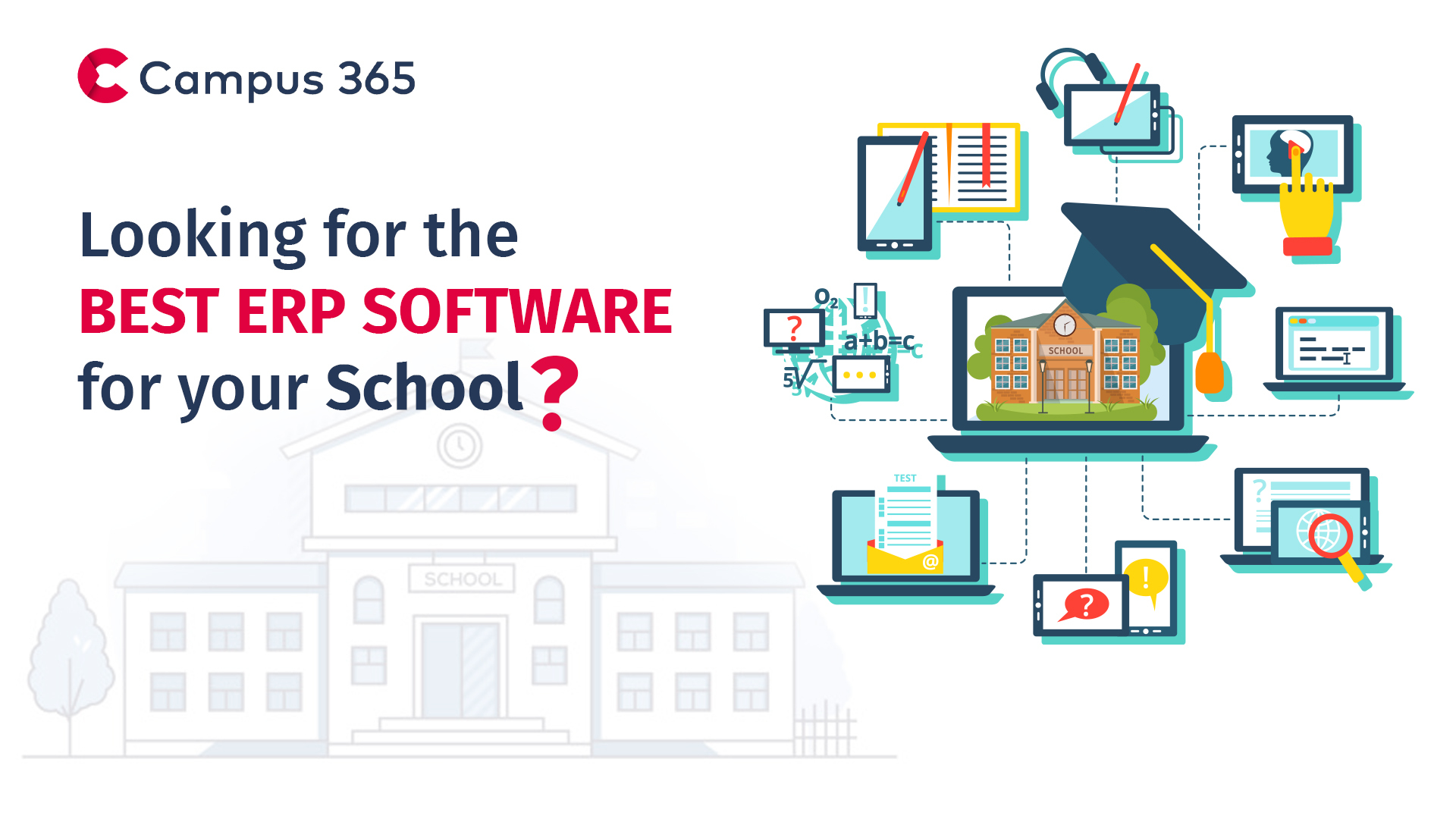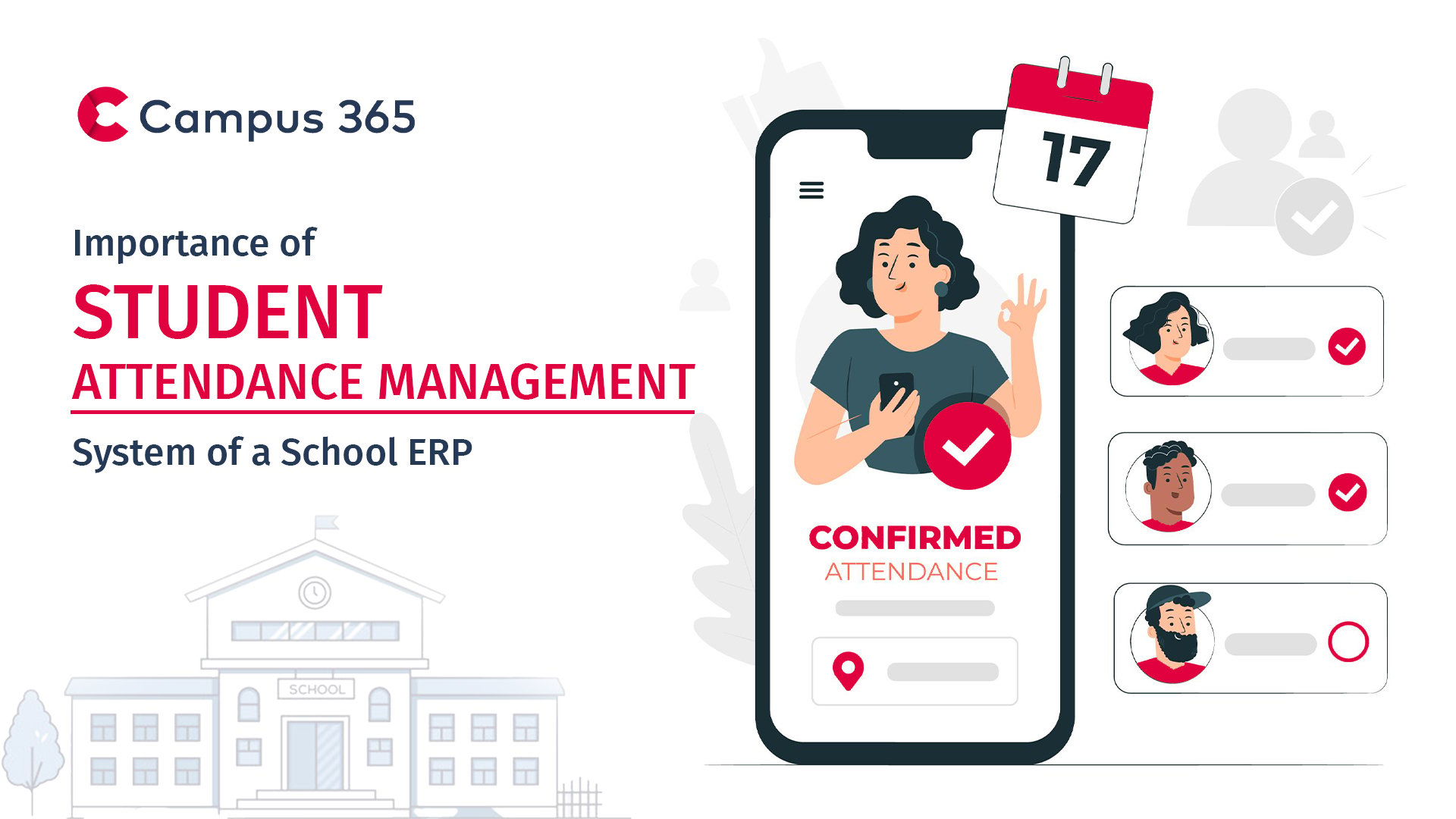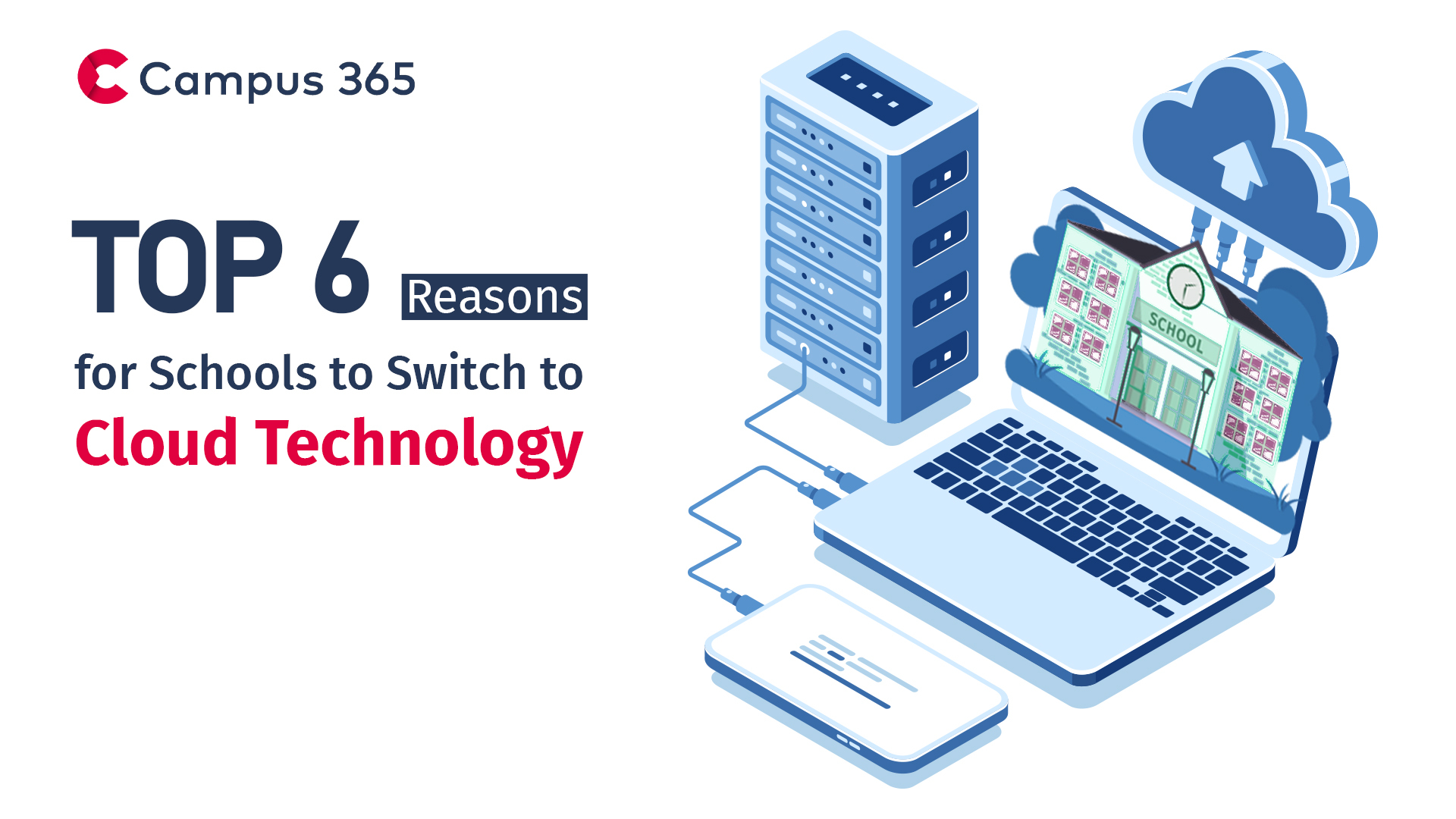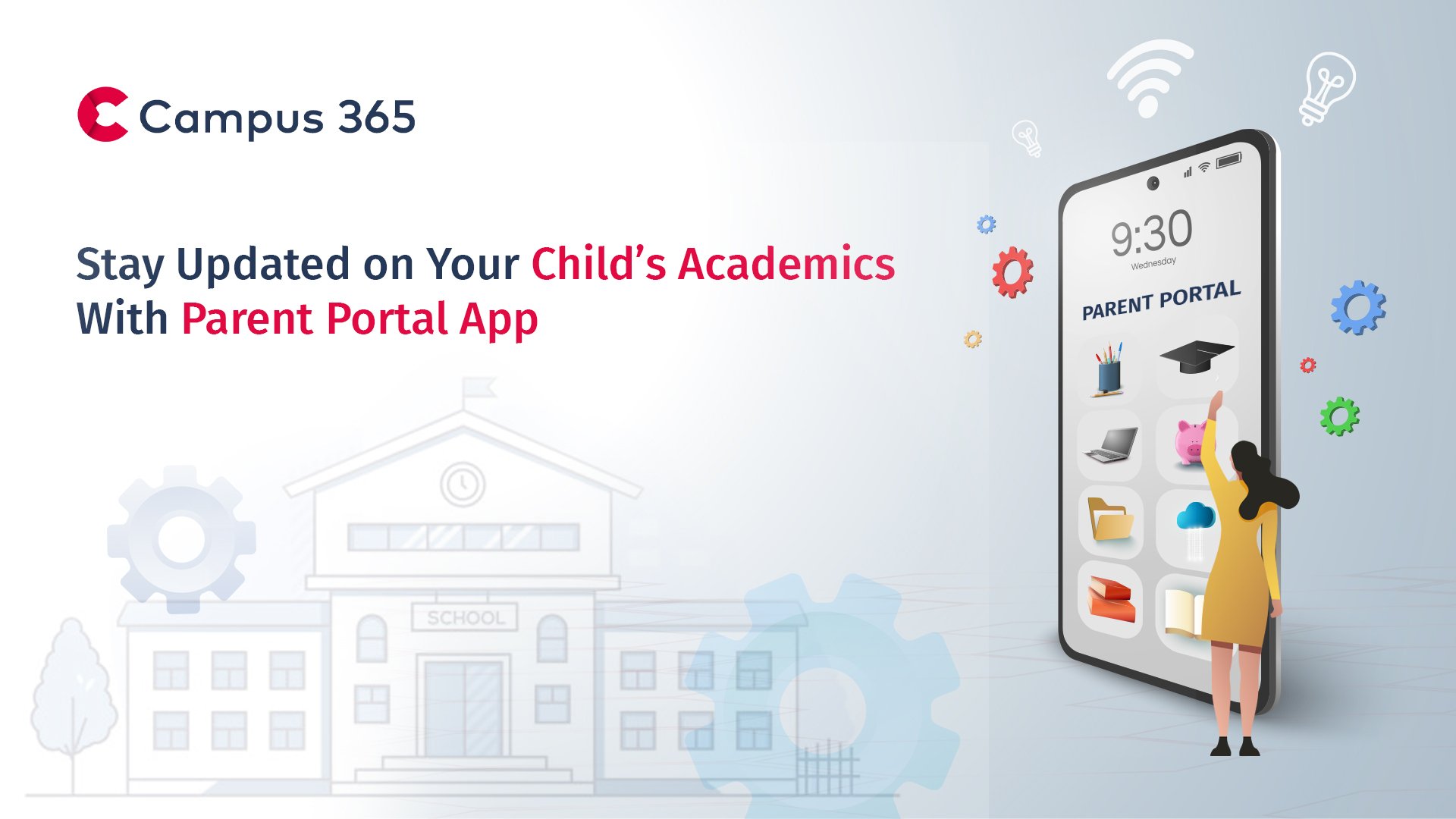School ERP systems have been there for a long time, but not many schools realized their importance until the pandemic hits the world. It gained traction recently when many schools began to operate online and digitally. It was during these trying times that this software has been shown to improve student education and make school administration easier and more efficient.
A school management software system is a program that is designed to help a school manage and streamline its day-to-day academic and non-academic operations. From a centralized platform, school management software allows schools to monitor everyday operations such as daily attendance, timetable management, transport management, fee management, and so on.
Most schools nowadays use student information management systems like Campus 365 to boost efficiency and productivity, thereby saving a significant amount of time spent on various important administrative tasks. This software also assists in alleviating the stress of managing large amounts of data from schools.
This is why many schools have already adopted educational management information system software to simplify daily management tasks. However, there are still a lot of schools that are yet to implement it. Choosing the right school ERP module can be difficult for schools if they are going to use it for the first time. They might be having some concerns, queries, and lack of information to ahead and implement a school ERP software.
Now, to alleviate some of these probable concerns, let’s address the ten most frequently asked questions about school management systems.
Continue reading to find answers to the most pressing questions about school ERP software:
1. What is the school ERP system or Student information management system?
A school ERP system is a comprehensive management tool to streamline every facet of a school's operations, from student data to scheduling and transportation by automating these tasks.
An educational management information system, like Campus 365 is specifically developed to reduce the daily workload of schools and simplify the numerous processes for smooth functioning of the school and bring effective results to student education.
Most schools nowadays use school management systems or school ERP software to boost efficiency and productivity, thereby saving a significant amount of time spent on various important administrative tasks.
2. Can a school ERP software be used compatible with playschools, coaching institutes, and colleges?
Yes, comprehensive school management software should be easily scalable to serve the requirements of any educational institution regardless of its size and type. Be it a big school or a playschool, a coaching center or a college or university, a customizable school ERP is always the solution as it can be easily scaled up or down as per the needs. Campus 365 is offering its digital solutions to schools, coaching centers, and corporate educational institutions as well. The catch is you should choose that software solution that is completely scalable.
.jpg?width=1200&name=infographic%20school%20erp%20Ques22%20(1).jpg)
3. How does implementing a school management system make a difference?
School management software boosts operational efficiency and productivity by centralizing information about all employees and students. It assists the school in becoming more coordinated and self-sufficient. It saves money, time, and energy because all staff and student reports and receipts are generated online, leaving no margin for mistakes.
Campus 365 school ERP can cut down the cost and effort used in student admission by automating this task. Not only this, the hectic job of fee collection, timetable creation, admission inquiry, reports generation, communication, assignments, and exams can be automated in one go by just implementing Campus 365 ERP on your school premises.
Once done, the difference is so vast as the productivity will increase manifolds with the use of its digital solutions.
4. A school management ERP is a desktop software or a mobile application? How does it work?
A comprehensive school ERP that takes care of all the school management functions is generally a desktop software that is integrated with a mobile application as well. Both the interfaces have their uses. Desktop software is needed by the school staff to process fees, for student records management, create timetables and manage other essential activities. But the other stakeholders like teachers, students, parents or bus drivers, etc. can’t sit in front of a desktop all the time. Hence, a mobile application is very useful for them to manage their tasks. Campus 365 is a complete school ecosystem with a mobile application for students, parents, and teachers.
5. What role does a school ERP play in improving students' academic performance and teachers' pedagogical skills?
A competitive school ERP software can help the school management to achieve these goals to some extent as it collects all the data of the students be it academic or non-academic, measures the performance, and prepare reports accordingly. The parents and teachers can analyze these performance reports to mark out the strengths and weak points and work on them further. Campus 365’s student information management system also tracks the mental health of students with its ‘mood tracking’ feature and sends reports for timely action. There are modules in the ERP software like attendance management, course management, automated timetables, etc that helps teachers in saving a lot of time which they can utilize in creating new teaching plans, and learning new methods and ideas to enhance student performance.
6. In a school, who can have access to the data of school ERP software?
All the stakeholders have the required access to the school management software system implemented at school. Teachers will have access to the student's academic records, timetables, learning management system, attendance module, online messaging system to connect with parents, etc. Similarly, the admin staff will have access to the fee management system, student health records, reports and analytics, GPS information, etc.
7. Is it possible to hold online classes using the school management software system?
Yes, a dedicated school ERP system generally provides the feature where the schools can conduct online classes for their students. During the pandemic, educational institutions all over the world have to resort to an online learning model where school ERP software has played a significant role. School ERP like Campus 365 has made digital learning possible with a continuous flow of education with global access to every student. Now with the reopening of schools, the ERP software is slowly moving towards a hybrid learning model for the ease of learning for both schools and students.
8. Can a school ERP software system aid in decision-making at multiple levels?
Yes, the school ERP system does increase the effectiveness of decision-making at school at multiple levels. For a student, the software records and tracks the academic, non-academic, and behavioral performance of each student at school and sends the reports to the teachers and parents. With the data in hand, the parents and teachers can take the required timely decisions for the overall growth of students’ performance. Similarly, various financial and inventory reports are made digitally available to the school owners, board of directors, or school management allowing them to make crucial decisions from a bird’s eye view.
9. Does a school ERP help in timetable management?
School Management System equipped with an integrated timetable management module can assist schools in creating an error-free timetable by providing details such as the teachers’ availability for all subjects across all grades, the number of classes, and the total number of students in a branch- and section-wise manner. Campus 365 has an exclusive iTimetable feature that creates automated school schedules and saves approx. 4 hours of the weekly time of teachers. As a result, it can assist faculty members in creating and managing daily, weekly, and monthly timetables with ease. Teachers can also keep track of their unit-wise curriculum, planned lectures, and lectures that were delivered by them.
10. What are the parameters to consider before choosing the best school management system?
Before selecting a school software, the school management should first consider and analyze its core requirements from the ERP. Once you identify your school’s requirements then it gets easy to look at these features in the product. The school can collect information from the stakeholders like the school staff, students, and parents and then decide the school requirements. Then, the features of the school management software available, as well as their packages, can be assessed to shortlist the ones that meet the school’s needs.
Lastly
Choosing the right educational management information system for your school is quite important as once implemented the whole infrastructure will depend on the ERP module. Hence, it is very important to analyze the school’s needs and requirements and then select the best school management system which is best suited. A suitable school ERP software system should be able to address all the issues and offer an optimized digital solution for them. Campus 365 is a complete school ecosystem that not only caters to the need of schools but also their parents, teachers, and other stakeholders. This helps the school to improve its productivity by bringing in everyone concerned.
Campus 365’s ERP module is successfully serving more than 2000 educational institutions across the country with its unmatched digital solutions, user-friendly interface, and innovative features that can serve all the stakeholders of the schools.




